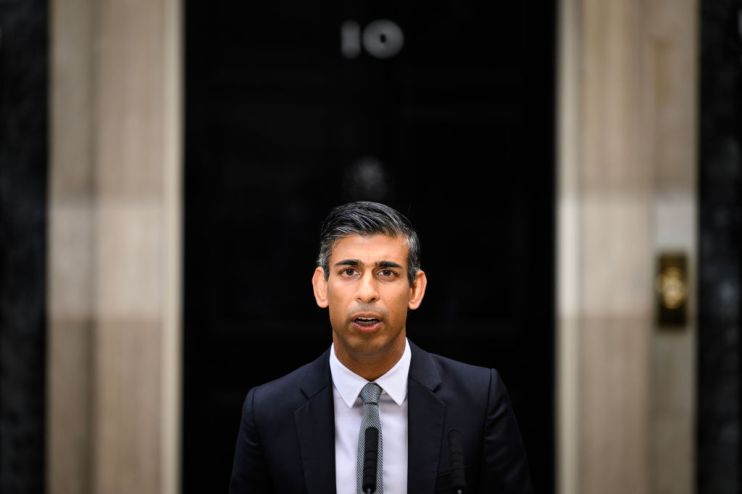Pound surges and UK debt costs tumble on Sunak’s first day as PM

Rishi Sunak on his first day as prime minister promised “hope” everyday after addressing the UK’s economic challenges, but it already seemed that way for the pound today.
Sterling surged as much as 1.8 per cent against the US dollar, pushing it far above the $1.03 record it reached after former PM Liz Truss’s disastrous mini-budget.
UK borrowing costs – which have tumbled since Sunak emerged as the favourite to enter Number 10 – fell again today.
Rates on the 10-year gilt dropped over 10 basis points, while the 30-year gilt yield dipped around eight basis points. Yields and prices move inversely.
Sunak said in his speech outside Number 10 today that the government faces “difficult choices” as the country “is facing a profound economic crisis”.
Pound/US dollar exchange rate

He added: “We will create a future worthy of the sacrifices so many have made and fill tomorrow, and everyday thereafter with hope.”
London’s FTSE 100 was broadly flat.
Sunak kept Jeremy Hunt as chancellor in his first cabinet reshuffle as PM. Some Truss sympathisers, such as Jacob Rees-Mogg, who was business secretary, have been booted out.
Suella Braverman, a Truss ally, has been recalled as home secretary as Sunak tries to create a top team that is more representative of different views in the Conservative Party.
Former Number 11 incumbent Sunak is expected to prioritise stabilising the public finances by signing off Hunt’s plans to raise taxes and cut spending at next Monday’s fiscal statement, putting him in direct contrast with Truss’s approach during her 50 day premiership.
A reduction in government borrowing has calmed financial markets.
“The pound rose to the highs of the day on confirmation that Jeremy Hunt would remain in post as chancellor of the exchequer, and the pledge by new PM Rishi Sunak to correct the mistakes of his predecessor,” Michael Hewson, chief market analyst at CMC Markets UK, said.
Truss and her first chancellor Kwasi Kwarteng launched £45bn of unfunded tax cuts on 23 September, just a few weeks into their administration.
That prompted chaos on financial markets that resulted in the pound falling to a record low against the dollar, UK borrowing costs hitting their highest level in over 20 years and a pensions sector crisis that forced the Bank of England into an emergency £65bn bond buying programme.